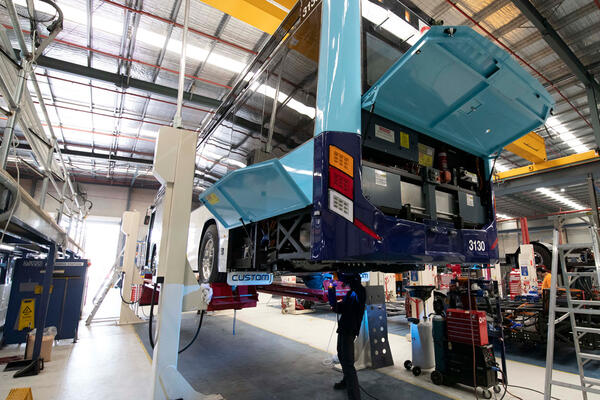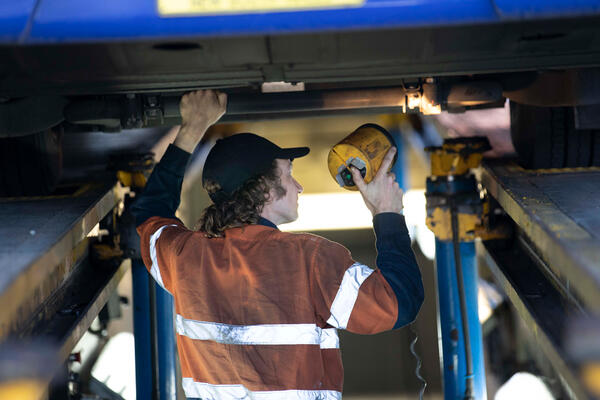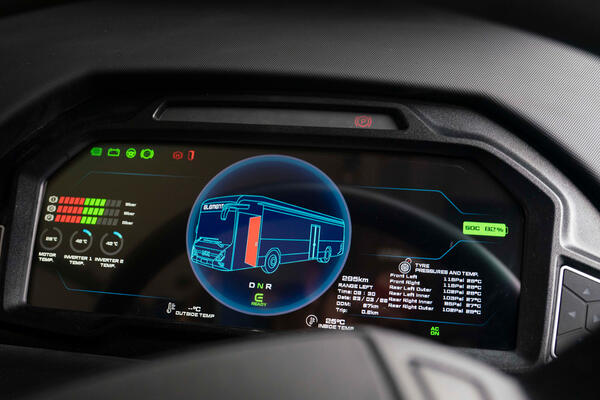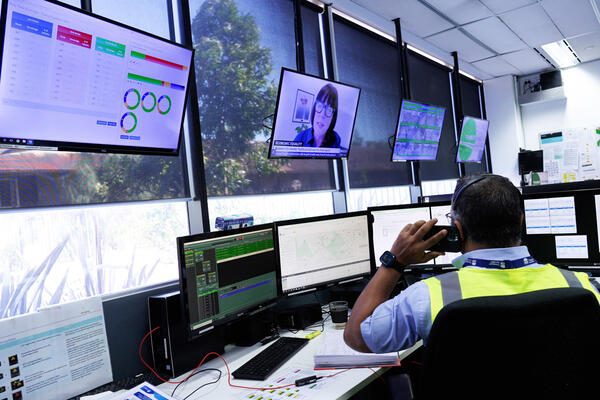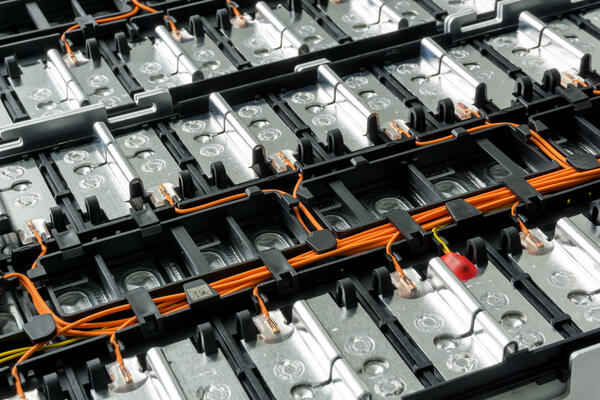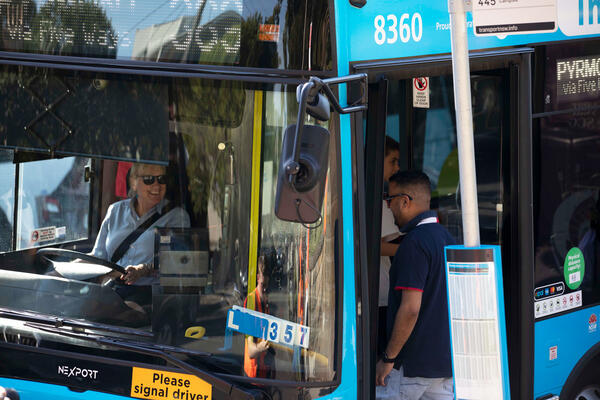
Join the Zero Emission Buses journey
Do you enjoy driving and working with community?
Bus operators across NSW are looking for new drivers to fill job vacancies now. Join a team of 25,000 who drive more than 8000 buses that provide transportation across NSW.
Bus drivers play an essential role in connecting local communities. Throughout NSW, they carry more than 200 million passengers every year.
If you enjoy driving and love working with people, this could be the career for you.
Learn more about becoming a bus driver
Interested in how things function?
The NSW Government is seeking to increase local manufacturing of buses, bus components and electric bus and vehicle charging infrastructure. This will mean a rise in demand for engineering, manufacturing and technology related areas as we transition our fleet of more than 8000 diesel and Compressed Natural Gas (CNG) buses to Zero Emission Buses (ZEBs).
Over 80 courses in more than 400 locations exist within the automotive and machine-related industry.
Learn more about skills-based training in this area.
Tertiary degrees in electrical, mechanical and product engineering will also play a key role in the transition to ZEBs, as manufacturers design and develop a new range of buses and coaches to support different services and regions across NSW.
Are you a fixer?
ZEBs, like all vehicles, require maintenance. Changes in the power source from diesel and CNG to zero emission technology means the experience of working with buses has changed to one that is cleaner and more sustainable. ZEBs have fewer moving parts and smarter diagnostics.
Some of the current skills-based training around bus maintenance include:
- Certificate III in Electric Vehicle Technology
- Certificate II or III in Automotive Body Repair Technology
- Certificate II or III in Automotive Electrical Technology
- Certificate II in Automotive Steering and Suspension System Technology
- Certificate II or III in Automotive Underbody Technology
- Certificate III in Automotive Refinishing Technology
- Certificate III in Heavy Commercial Vehicle Mechanical Technology
- Certificate II in Automotive Servicing Technology
- Certificate II in Automotive Air Conditioning Technology
- Certificate II in Automotive Tyre Servicing Technology
Are you detail-oriented?
The rollout of ZEBs will improve the level of information and data we receive from the buses we operate. There are also new streams of data that require management and analysis to support efficient bus operations within depots. This includes information on energy consumption, bus battery performance and charge, electrical depot operational performance and management.
New roles for data analysts are being introduced at depots and within Transport to support these new data streams as depots commence the transition to ZEB fleets.
Do you have a passion for innovation and how systems talk to each other?
The transition to ZEB brings together a number of different technology systems. There is the on-board technology that sits within a ZEB bus, the charging technology contained within pedestal, pantograph or other charging infrastructure, and the operational system used within depots to manage things like workforce and routes.
To effectively manage bus operations, these systems need to communicate with each other and be well integrated.
Opportunities now exist for the development of new smart programs that use artificial intelligence programming and data systems that can improve bus operations.
Are you concerned about global waste?
As we transition to ZEBs we will be introducing large batteries into the local market. How these batteries are managed after initial use may vary. They may be used as onsite depot energy storage devices once a bus battery is replaced or potentially re-purposed for other uses. At end of life, these batteries will require sustainable recycling.
The collection and recycling of heavy vehicle batteries will lead to the creation of new industries and require specialised facilities and skills, especially around mineral recovery from battery cells.
In 2020, CSIRO and the Future Battery Industries Cooperative Research Centre published the most up-to-date, comprehensive review of the status of the lithium-ion battery recycling industry in Australia.
In looking towards a sustainable future, the United Nations environment program published a report in 2021 on the Role of Business in Moving from Linear to Circular Economies. A shift to more circular economies means products are created with minimal use of virgin natural resources and used and disposed within the same geographic region, reducing carbon impacts from global freight.
Moving to a more circular economy provides opportunities for local businesses to grow and innovate. It will also support large scale production and an increase in demand for local talent and capabilities.
For advice or professional guidance at any stage of your skill-based career, wherever you live in NSW, and to learn about fee-free training visit Careers NSW.
Learn more about NSW Fee-Free training
Some of the careers and training associated with ZEBs
Non-nationally recognised
- Introduction to electric vehicles TAFE NSW (product awareness training)
Nationally accredited skill sets for upskilling
Certificate II, III and IV (including school-based traineeships/apprenticeships)
- Landscape labourer
- Trades assistant
- Tyre Fitter
- Vehicle Detailer
- Automotive Parts Interpreter
- Automotive Manufacturing Technician
- Vehicle Body Builder Technician
- Coach Builder Technician
- Sub Assembly Technician
- Heavy vehicle driver
- Builder and Tradesperson
- Auto Heavy Vehicle Mechanic
- Brake Mechanic
- Metal Fitter and Machinist
- Motor Mechanic
- Auto Electrician
- Plant and Machinery Worker
- Concrete Worker
- Fabrication Worker
- Fitter and Turner
- Automotive Painter
- Automotive Body Builder
- Trainer and assessor
Diploma/Advanced Diploma
Degree
- Environment Services Officer
- Civil Engineer
- Structural Engineer
- Software Engineer
- Mechanical Engineer
- System Engineer
- Electrical Engineer
- Chemical Engineer
- Mechatronics/Robotics Engineer
- Industrial Engineer
- Technical Writer
- Technical Officer
- Product Designer
- Environment Service Manager
- Environmental Engineer
- Material Scientist
- Chemist

